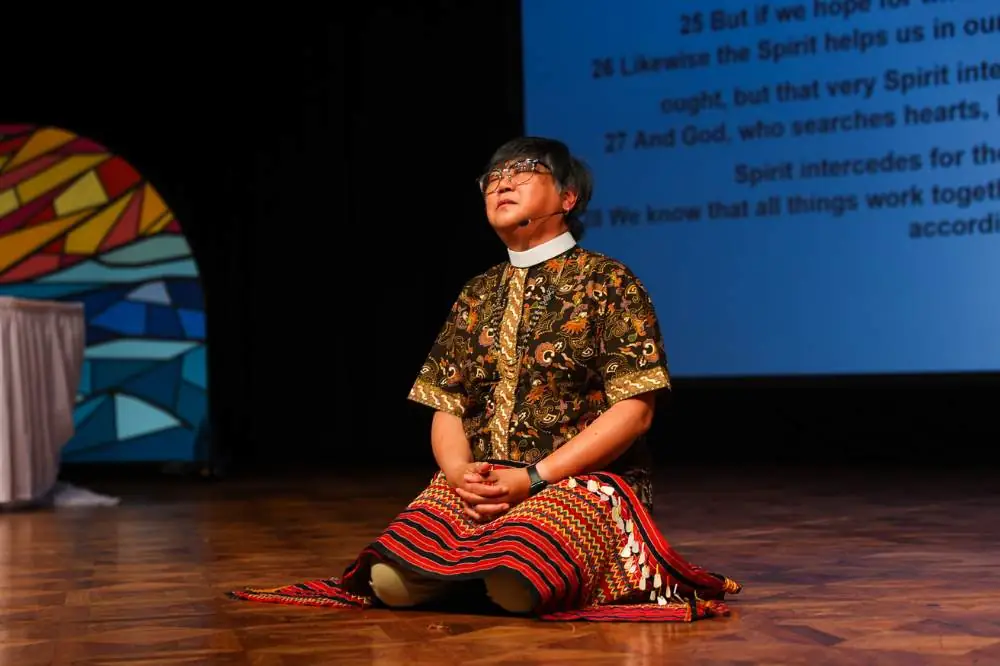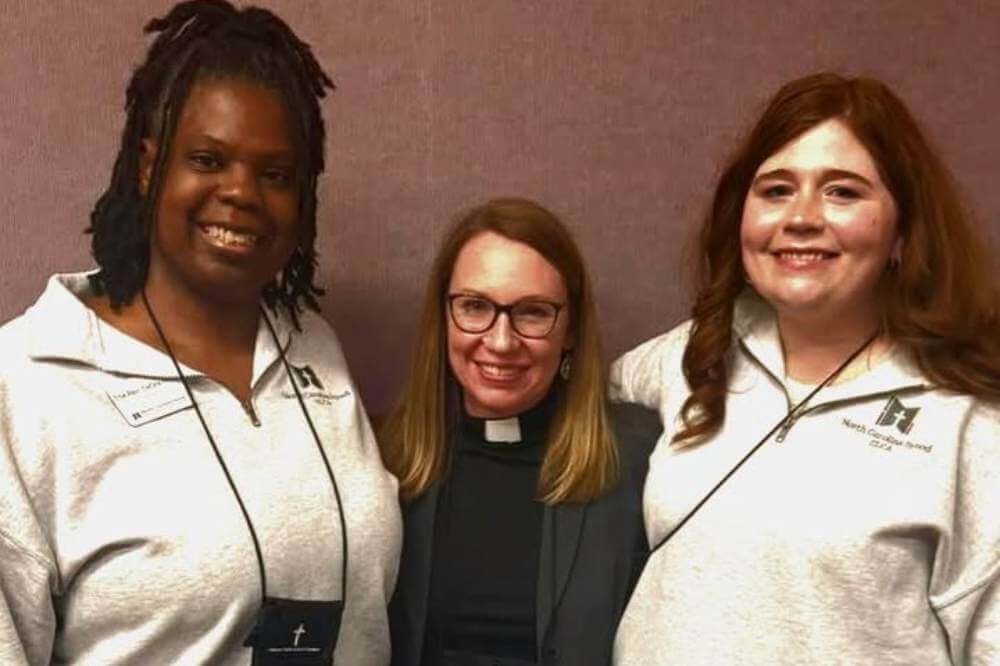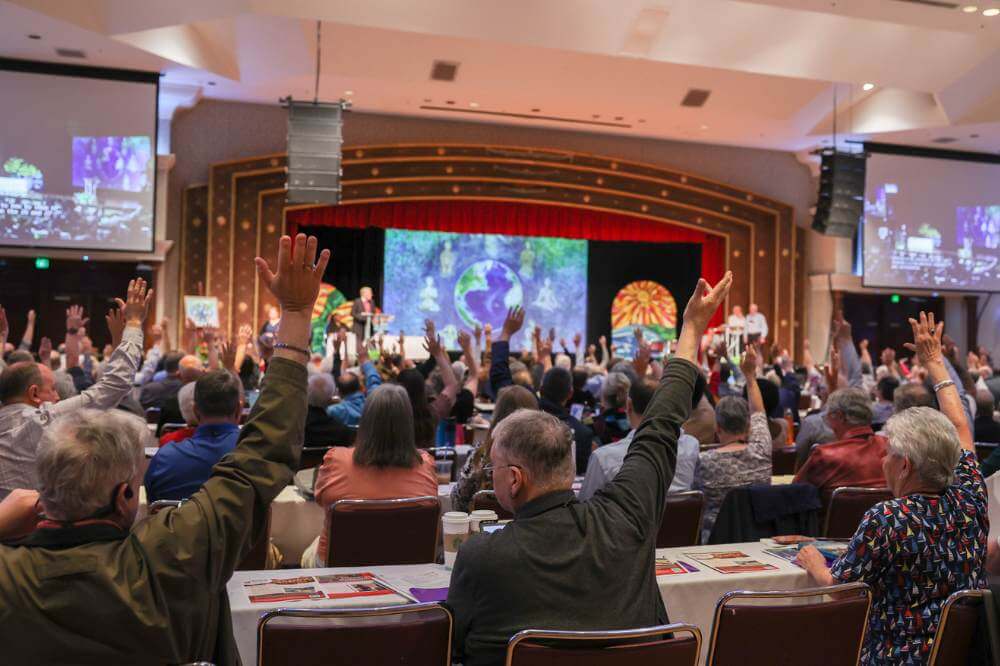Image Credit: Cetera Jacobs Creative
The Friday morning Bible study was provided by Pastor Tita Valeriano, a third-generation Lutheran who immigrated to the U.S. from the Philippines. She is currently serving as the ELCA Program Director for Asian and Pacific Island Ministries. Pastor Valeriano shared her background and life experiences as she noted that there is no neutral reading of the Bible, but that our reading is influenced by the lenses of our experiences and worldviews.
The Bible study was based on Romans 8:24-28. In this selection of Paul’s letter to the Romans, he is aware of the conflict between Jewish and Gentile Christians and his call to proclaim the gospel to the Gentiles. He declares that in hope we are saved. Paul acknowledges that the Spirit helps us in our weakness, and when we do not know how to pray, the Spirit intercedes with groaning too deep for words. Pastor Valeriano chose to focus on the key word “groan.” She both described and demonstrated an allouwoy—a sound of deep sorrow and death. Allouwoy is from the Kalinga language, one of the 110 indigenous communities of the Philippines.
Pastor Valeriano noted that Paul lived during the time of Pax Romana and was aware of military bases at all the borders of the Empire. Dignity and wealth existed, but freed slaves could not overcome the stigma of slavery. The dominant culture and civilization, the Roman peace, law, and dignity for the privileged, resulted in poverty, exploitation, submission, and injustice for others. Paul declared that both Jewish and Gentile Christians have justification in Christ and are considered one in Christ, undistinguished by any cultural categories that separate believers.
Pastor Valerino described her experience of living in a colonized country and related the Filipino colonization to that of other colonized countries. She noted these societies groan to break free from outside powers and forces. Hope for all those who are oppressed is lived out in trust and confidence in God.
Pastor Valeriano shared thoughts from Dr. Fernandez on what it means to be a transforming and reforming church:
(1) The church as a witness to suffering.
(2) The church as a collective witness to hope; resurrection as insurrection in hope.
(3) The church as a witness to struggle. Our practice of keeping the memory of the passion and resurrection of Christ through the sacraments is where we witness to the struggling church.
She concluded that this church’s reformation is a reformation from within and cannot exist apart from the transformation of the society, our neighbors, and this world.
Thanks be to God for Pastor Tita Valeriano’s ministry in this church and for her presence and proclamation at this assembly!
Attribution:
Amy Hill (Our Saviour, Southern Pines) for the NC Synod



